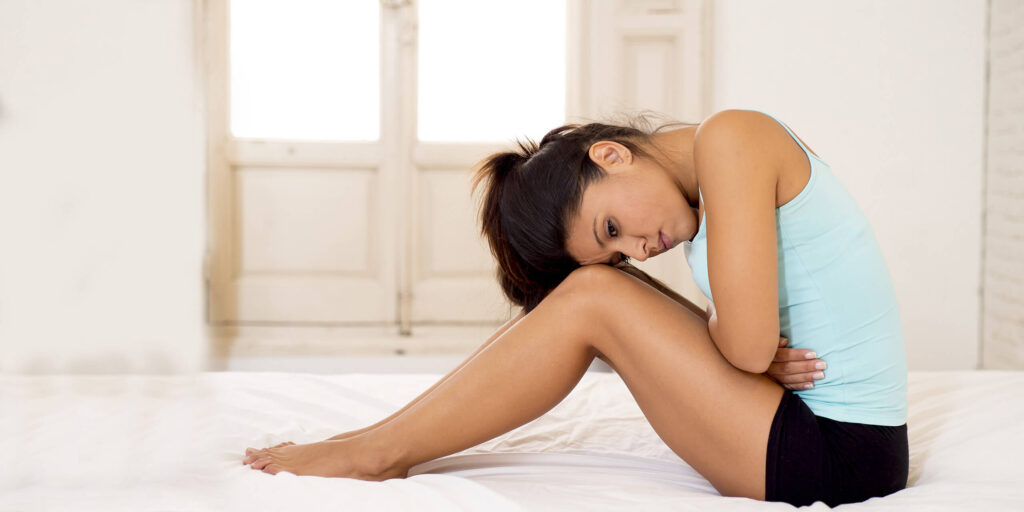How can you tell if you have uterine fibroid pain or if you're dealing with a different condition? It can be tricky, since many fibroid symptoms overlap with other conditions, including endometriosis and adenomyosis. Still, there are certain clues you can look to that will help you identify and treat uterine fibroid pain.

In addition to heavy bleeding during your period, having uterine fibroids can cause you to experience:
2. Lower Back Pain, due to pressure on your nerves and muscles that can lead to painful inflammation.
3. Stomach Pain, often experiences as uncomfortable fullness or as pressure in your abdomen. But keep in mind that sharp or stabbing stomach pain is not typically associated with uterine fibroids, and should be discussed immediately with your healthcare provider.
4. Pain with Sex, since penetration can place additional pressure on the tumors, especially those that are growing close to your cervix.
5. Rectal and Bladder Pain, caused mainly by large fibroids or by pendunculated fibroids (these grow outside of your uterus, remaining connected by stalk-like growths. They may also cause addition symptoms such as constipation and frequent urination.
There are many ways to relieve fibroid pain. You may be able to reduce your discomfort by following a fibroid-friendly diet and getting regular exercise. Sometime, over-the-counter or prescription medications may provide sufficient relief. But if you wish to shrink your fibroids without undergoing surgery, we invite you to explore Uterine Fibroid Embolization (UFE) in Dallas. This minimally invasive procedure blocks the tumors' blood supply, leading to shrinking fibroids and relieving symptoms. You can learn more about UFE by [tx/appt-link] requesting a consultation [/tx-appt-link].

Our Locations
Monday - Friday
8am - 5pm
Dallas
3920 W Wheatland Rd,
Suite 108,
Dallas, TX 75237
Plano
5425 W. Spring Creek Parkway,
Suite 100
Plano, TX 75024
Scheduling
Please contact our dedicated specialists to schedule a consultation today.
2025 Dallas Fibroid Center. All rights reserved. Website Design by Healthcare Success